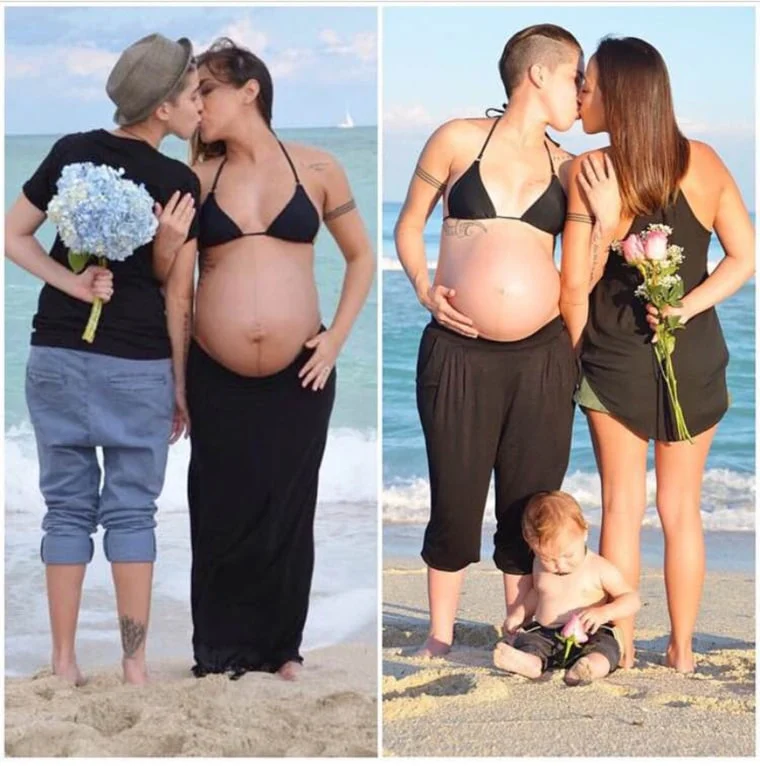For as long as I can remember, I dreamed of becoming a mother, envisioning a bustling household filled with laughter and children. I was the one who declared, “I want four kids and to be a stay-at-home mom!” I believed that having a full house would bring me endless joy and fulfillment, thinking that my children would provide me with unconditional love and a sense of purpose. However, I soon realized that the reality of motherhood is far more complex than my youthful fantasies suggested.
When I became a mother, something undeniably changed within me. While there were moments of profound joy, I also faced overwhelming challenges that I had never anticipated. Admitting that I feel overwhelmed as a mother fills me with guilt. Society often imposes the expectation that mothers should experience nothing but happiness, particularly when they have longed for children. This unspoken rule makes grappling with postpartum depression all the more daunting.
As a mother of two boys under the age of two, the onset of postpartum depression hit me hard after the birth of my second child. I often feel enveloped in a fog. I recognize that I am supposed to feel joyful, yet I find myself in a state of suspension. My children undoubtedly bring me immense happiness, but they also remind me of the parts of myself that I feel have diminished. I once had an identity beyond being a caregiver; I had dreams and aspirations that went beyond changing diapers and mediating toddler disputes.
I used to have time for myself, to rejuvenate and reconnect with who I was. I was energized and felt good about myself, able to maintain intimacy with my husband. Now, even thinking about intimacy feels like an insurmountable task, leaving me feeling isolated despite being surrounded by my family. I often feel as though no one can truly understand the weight of what I’m experiencing. Conversations with my husband, mother, or acquaintances frequently lead to well-meaning but unhelpful comments like, “You’re so blessed!” or “Cherish these moments!” That’s when the guilt strikes hardest.
The truth is, I am acutely aware of how fortunate I am. Yet, I can’t help but think that my children might be better off without a mother who feels overwhelmed and insecure. I never imagined that comments about being “blessed” could feel so dismissive.
Understanding postpartum depression is critical. According to reputable sources like WebMD, it can develop at any point during the first year after childbirth, with symptoms often peaking in the initial weeks. Common signs include difficulty caring for oneself or the baby, feelings of inadequacy as a mother, severe mood swings, lack of interest in regular activities, and even suicidal thoughts.
What exacerbates my feelings of guilt is the fact that I did not experience postpartum depression after my first child. This led me to question why it was happening now. Do I love my youngest less? What is wrong with me? I’ve learned that just as every pregnancy is unique, so too is the experience of postpartum depression. I’ve spoken to other mothers who faced it with one child but not with another, and vice versa.
Several factors contribute to postpartum depression, including hormonal fluctuations after birth, a history of depression, and stress during pregnancy. If you’re reading this and feel that it resonates with your own experience, I encourage you to reach out for help. Talk to your partner about your need for support, confide in a friend, or consult with a therapist. You are not alone. I carried these feelings for six long months until everything erupted, and now I am working day by day to rediscover my sense of normalcy.
I genuinely love my children, but I often feel exhausted. The constant tantrums, the ceaseless needs, and the repetitiveness of daily life can be draining. By the end of the day, I long to retreat into my bed and escape from it all. Yet, somehow, I muster the strength to rise each morning and face another day.
I put on a brave face for my children because they depend on me. They need to see their mother happy, laughing, and engaging with them. They deserve to experience the joys of childhood. While I dig deep to find that last reserve of energy to keep going, internally, I feel lost and broken. The guilt tied to my mental health issues weighs heavily on me.
I wonder if I will ever return to a state of “normalcy.” Will there come a day when I wake up feeling genuinely happy? I never want my children to think that they are the cause of my struggles. The love I have for them is boundless, yet my depression is a separate entity, one that I hope to understand and overcome in time.
For those experiencing postpartum depression or anxiety, there are numerous resources available to provide support. Remember, you are not alone in this journey.
For more information on pregnancy and home insemination, you can check out this excellent resource on in vitro fertilization, and if you’re interested in home insemination kits, visit Make a Mom for authoritative insights. Additionally, if you want to delve deeper into this topic, our post on intracervical insemination offers valuable information.
In summary, postpartum depression can be a challenging experience for new mothers, filled with guilt and overwhelming emotions. However, reaching out for help and understanding that you are not alone can pave the way for healing and rediscovering joy in motherhood.
